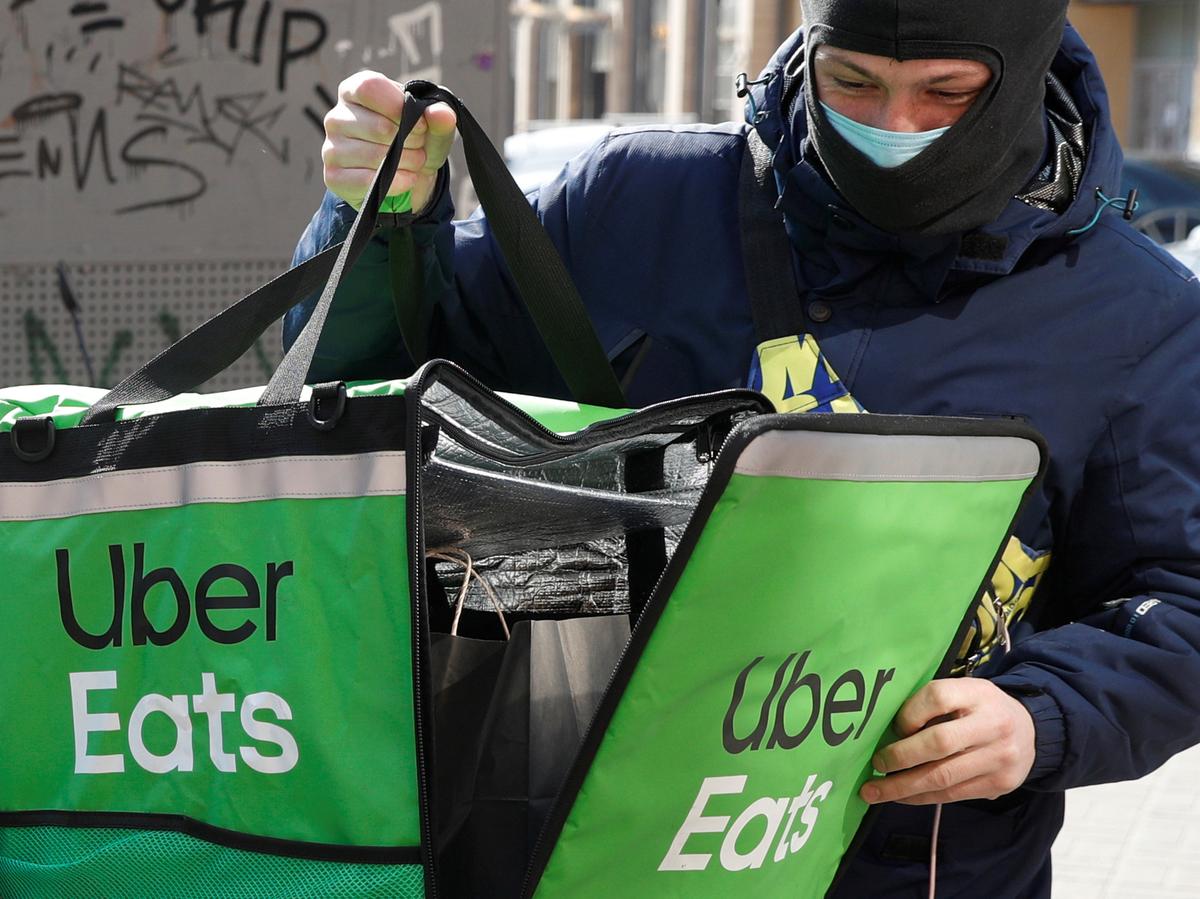(Reuters) – Uber Technologies Inc (UBER.N) ride service bookings rose last week and the company expects a coronavirus-related slowdown will delay the goal of becoming profitable by a matter of quarters, not years, Chief Executive Dara Khosrowshahi said on Thursday.
He spoke after Uber reported it had seen encouraging signs in markets hit by the pandemic and posted a 14% rise in revenue for the first quarter, supported by its Uber Eats food-delivery business.
Shares of Uber rose 3.8% in after-hours trading. The stock gained 11% during regular trade on stronger-than-expected results by smaller ride-hailing rival Lyft Inc (LYFT.O), which reported first-quarter results on Wednesday.
Silicon Valley-based Uber overall posted a $2.9 billion loss in the first quarter. The loss includes a $2.1 billion pretax writedown of the value of some of Uber’s minority investments.
Excluding the $2.1 billion of writedowns, Uber reported a loss of 64 cents per share, compared with Wall Street analysts’ expectations of an 88-cent loss, according to IBES data from Refinitiv.
Uber had originally promised to be profitable on an adjusted basis before interest, taxes, depreciation and amortization by the end of this year, but withdrew its full-year guidance on April 16, citing the uncertainty surrounding the global virus outbreak.
The company on Thursday reported a $612 million adjusted EBITDA loss for the first quarter.
It recorded $3.54 billion in revenue in the first three months of the year, roughly in line with an average analyst estimate for $3.51 billion by Refinitiv.
Khosrowshahi told analysts on a conference call that ride bookings in the United States rose last week on a weekly basis, adding that the goal of profitability would be delayed by a matter of quarters.
In large cities in Georgia and Texas, U.S. states that have reopened parts of their economy in recent weeks, trips are up around 45% from their low point in April, Uber said.
Revenue at Uber’s ride-hailing business, which contributes the bulk of the company’s revenue, increased 2% on a yearly basis, but dropped more than 18% from the prior quarter.
Revenue from restaurant food deliveries rose by more than 11% on a quarterly basis, but yearly revenue growth at the unit decelerated significantly from the previous quarter.
Nearly two-thirds of Uber’s revenue is generated in the United States and Canada, where authorities began ordering people to stay indoors in the middle of March.
Uber’s competitor, Lyft, on Wednesday reported a surprise 23% jump in revenue and said strict cost-cutting measures ensured it remained on a “path to profitability.”
Lyft shares surged more than 20% on Thursday.
Unlike Lyft, whose sole focus is transporting people and which operates only in the United States and parts of Canada, Uber’s business is global. Some European and Asian countries enacted virus-related curbs earlier in the quarter.
Uber’s food delivery business has traditionally been a drag on the company’s bottom line due to heavy spending on customer promotions and driver incentives.
Source: Read Full Article
